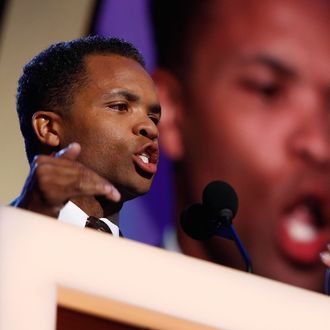
When Jesse Jackson Jr. resigned from Congress on Wednesday, two weeks after he won reelection, he cited very real health concerns and acknowledged for the first time a federal investigation into possible misuse of his campaign money, so it’s a safe bet the cost of finding his replacement wasn’t the first thing on his mind. Jackson has been out of work since June after he was diagnosed with bipolar depression. But thanks to the quirks of Illinois election law, it looks like he may have resigned at a particularly expensive time. It will take two elections, a primary and a general, to replace Jackson. If held on their own days, each special election would cost around $2.5 million, according to ABC. Thanks to laws restricting the time frame for replacing Jackson, at least one, if not both of those will probably have to be held a la carte. “Had Jackson waited until Dec. 15 to resign, [Illinois Gov. Pat] Quinn could have scheduled the general special election for April 9, along with Illinois’ other general elections,” ABC reports, but as it is, that will be too late.





























